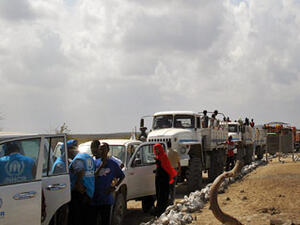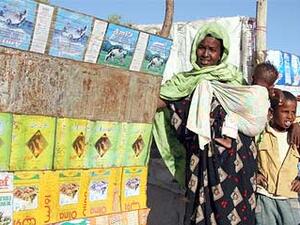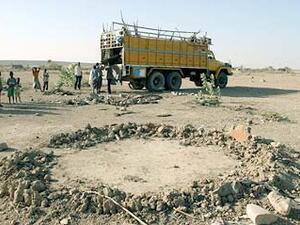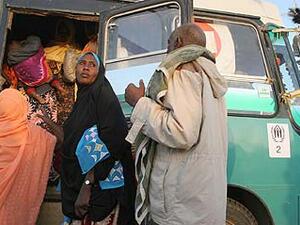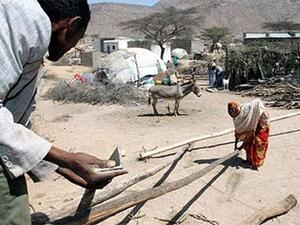Iraq: UNHCR cautious about returns
Iraq: UNHCR cautious about returns
There have been several public reports in recent days about limited returns to Iraq. We welcome improvements to the security conditions and stand ready to assist people who have decided or will decide to return voluntarily. However, UNHCR does not believe that the time has come to promote, organize or encourage returns. That would be possible only when proper return conditions are in place - including material and legal support and physical safety. Presently, there is no sign of any large-scale return to Iraq as the security situation in many parts of the country remains volatile and unpredictable.
According to a survey done by our staff in Syria, there are many reasons for returns to Iraq other than considerations of improved security. Of some 110 Iraqi families UNHCR spoke with in Syria the majority said they are returning because they are running out of money and/or resources, face difficult living conditions, or because their visas have expired. As a result of recent visa restrictions, a number of Iraqis have been unable to shuttle back and forth between Iraq and Syria to get additional resources, make some money or collect food distributions or pensions. The incentives offered by the Iraqi government of some $700-$800 to return home, as well as free bus and plane rides, have also played a role in returns. The survey also highlighted that this is the first time in recent years that Iraqi refugees are actually discussing return, which was not the case a few months ago.
UNHCR staff also did quick interviews with returnees in Baghdad, who cited economic difficulties caused by their long displacement as a major reason for going home. Many had run out of or nearly depleted their savings. Some returned as it was the last chance to get their children back into Iraqi schools before the end of the first term. Some were indeed encouraged by the reports regarding improvement of security, but many expressed concern about longer-term security, citing the fact that militias are still around and many areas remain insecure. People have mainly been returning to areas where they feel that local security forces are working properly and are maintaining control.
Although we are not in a position to monitor borders on a 24-hour basis, we have noted more returns to Iraq than arrivals in Syria - with a fluctuating average of 1,500 departures to Iraq and 500 arrivals in Syria per day. We cannot confirm reports that 46,000 Iraqis returned from Syria in October.
Inside Iraq, the number of internally displaced people (IDPs) increased slightly over the last few months. According to the latest figures received by UNHCR (with data from the Iraqi Red Crescent Society, Ministry of Displacement and Migration, Kurdistan Regional Government, local and international NGOs, UNHCR and the International Organisation of Migration) as of 21 November, it is estimated that over 2.4 million Iraqis are displaced inside Iraq. The breakdown is: 1,021,962 displaced prior to 2003; 190,146 displaced between 2003 -2005; and 1,199,491 displaced after the first Samarra bombing in February 2006 (28,017 during October).
Reasons for the increase include better registration of the displaced, but also recent visa restrictions in Syria, which meant more people moved inside Iraq rather than seeking refuge outside. We have also seen more secondary displacement, as governorates close their doors to the newly displaced from elsewhere (11 out of 18 governorates have limited access to new arrivals).
Still, there have been some returns among displaced people. Various families received financial incentives to return. We have some reports of families who returned to very difficult conditions (destroyed or damaged property) while others did not return to their original homes, but settled elsewhere (secondary displacement). Displaced Iraqis say access to shelter, food, work, water/sanitation and legal aid remain the most common needs.
According to government estimates, some 2.2 million Iraqis live outside Iraq - with some 500,000-700.000 in Jordan and up to 1.5 million in Syria.


